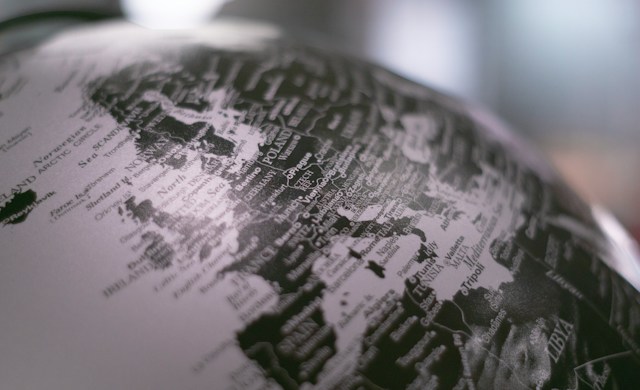
In the shadow of globalization and an increasingly interconnected world, we are confronted with a grim reality: international human trafficking. Not only is it a gross violation of basic human rights, but it is also now a global challenge affecting societies around the world. From the back alleys of remote cities to bustling metropolitan centers, no place is immune. So, it is even more important that we look at where human trafficking is a particularly acute problem.
WHY HERE? HOW HOTSPOTS FOR HUMAN TRAFFICKING CAME TO EXIST
In certain parts of the world, modern forms of slavery – and therefore also human trafficking – seem to be hitting particularly hard. So, the question arises: Why here, of all places? The answer is complex and is made up of various factors that are interwoven in a network of poverty, economic insecurity and inadequate legal structures.
One of the driving forces behind the rise in human trafficking is high unemployment and the lack of prospects in overcrowded urban areas. In these regions, where people live in precarious conditions due to economic challenges and social injustices, traffickers find the ideal environment for exploiting others. The lure of easy money at the expense of the most vulnerable in society makes such cities a hotspot for human trafficking. But it is not only urban centers that are affected. Remote rural areas are also targeted by human traffickers. Limited surveillance and restricted access to education play a decisive role here.
Another dimension of this problem is the weakness of the legal structures in many of the affected areas. Lack of law enforcement and failure to deter perpetrators create a climate in which human trafficking can thrive. Social instability, political unrest and conflict, as well as the impact of the COVID-19 pandemic, also contribute to this problem, as people are often willing to make risky decisions in times of chaos and uncertainty to survive.
INTERNATIONAL STRONGHOLDS FOR HUMAN TRAFFICKING
A few years ago, the Global Slavery Index confirmed what has been developing for decades: In the fight against human trafficking, Asia and Africa represent well-known strongholds. A US State Department report on human trafficking also highlights the continuing urgency for action, as countries such as North Korea, Iran, Russia, China and numerous African states are confronted with a pronounced form of human trafficking.
The challenges are manifold: overcrowded urban areas and remote rural regions are equally in focus in Asian countries such as India, China and Thailand. People struggle with poverty and a lack of employment opportunities, making them vulnerable to the deceptive lure of human traffickers. False promises often lead to people falling into the trap of exploitation and slavery. Africa is not spared from this problem either. Countries such as Nigeria, the Democratic Republic of Congo and Ethiopia are affected by social instability as well as political unrest, providing a favorable environment for human traffickers to carry out their criminal activities. Of particular concern is the fact that children are often kept away from schools, increasing their already high vulnerability to exploitation.

THE FRONTLINES OF HUMAN TRAFFICKING IN EUROPE
Did you know that The Netherlands has long been considered a stronghold for human trafficking in Europe? Unfortunately, Europe is no exception when it comes to human trafficking. A look at the reports of organizations such as GRETA illustrates the challenges we face.
In Eastern Europe, for example, Moldova is particularly at risk. Here, women and girls are often victims of human traffickers who take them abroad for sexual exploitation. However, other parts of Eastern Europe such as Bulgaria, Romania, Hungary and Poland are also struggling with the consequences of labor exploitation and human trafficking. Cities such as Sofia and Bucharest have repeatedly been identified as hotspots for human trafficking, as the number of victims is high.

The problems also extend to Western Europe, where the economic strength of Germany and the UK, among others, is attracting human trafficking activities that continue despite efforts by the German government or the UK Human Rights Committee. According to Europol, Austria plays a key role in this, especially for trafficked persons from Central and Eastern Europe. Italy, Spain and the United Kingdom in turn act as important destinations for victims from countries outside the EU. This is because countries along the Mediterranean coast are often transit points for human trafficking due to their geographical location. Here, people, especially migrants, easily become targets of exploitation and forced labor.
Once again, this multitude of hotspots shows that it is up to all of us to overcome these frontlines of human trafficking to create a safe future for all.
Translated by Emily Schiffer
#HumanTrafficking #GlobalSlaveryIndex #Exploitation #Slavery #HumanTraffickingHotspots #InternationalHumanTrafficking #ModernSlavery #AgainstHumanTrafficking #GegenMenschenHandel #EndExploitation #EndTrafficking #HopeForTheFuture #Austria
